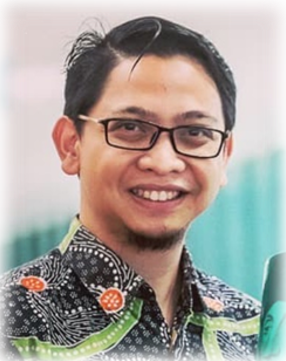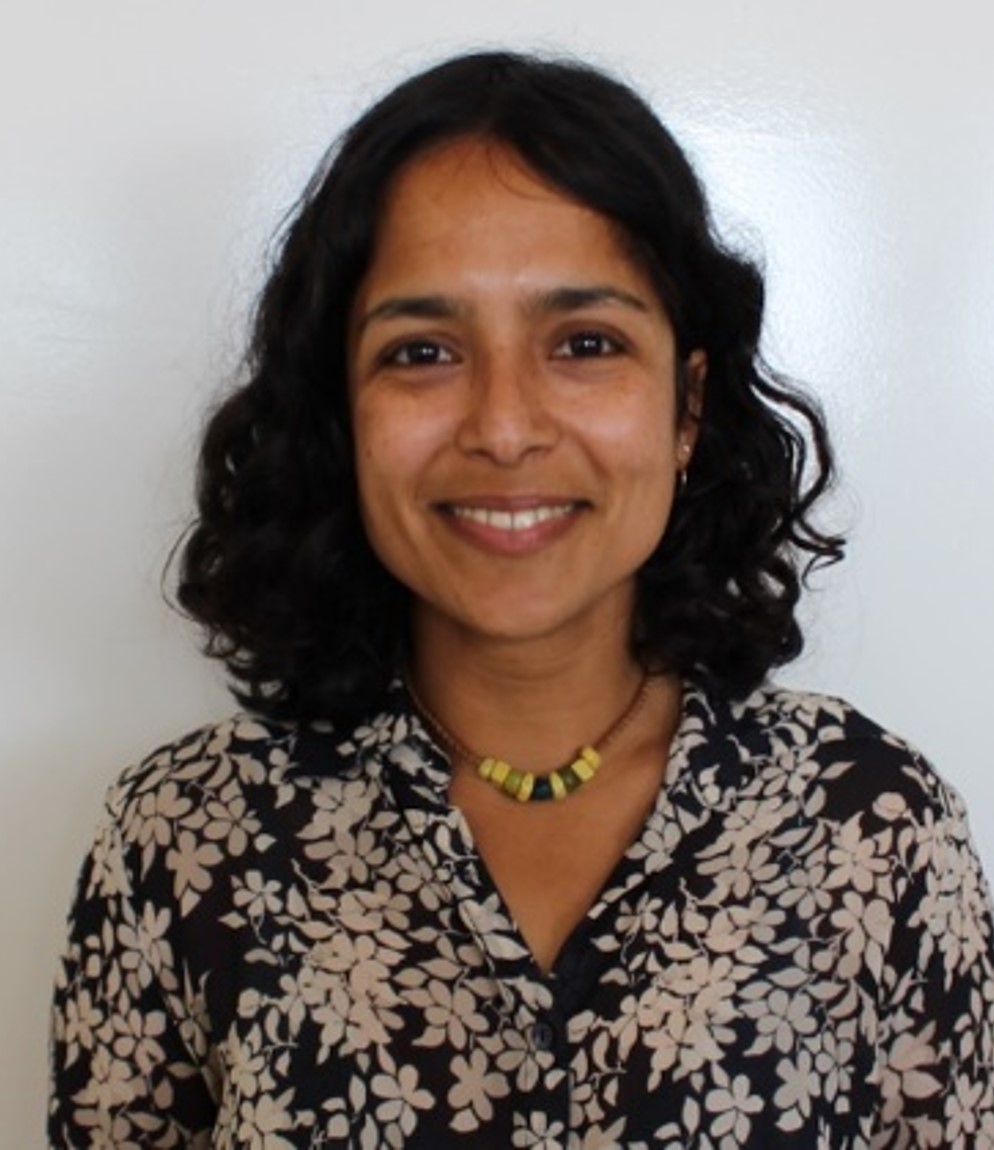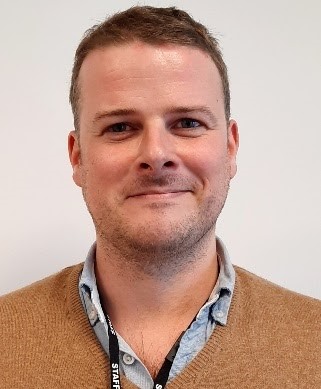The Changing Landscape of Multidrug-Resistant Tuberculosis in Children
Thursday 14th October 2021 12.30-1.30pm
Dr James Seddon
Reader in Global Child Health, Imperial College London Associate Professor, Stellenbosch University, Cape Town, Consultant in Paediatric Infectious Diseases, St. Mary’s Hospital, London.
James Seddon is a Reader at Imperial College London, an Associate Professor at Stellenbosch University, and a Consultant in Paediatric Infectious Diseases at St. Mary’s Hospital in London. His major area of research is that of children with TB, and he works on TB diagnostics, therapeutics, drug-resistant TB, TB meningitis, adolescent TB, TB burden modelling and the evaluation of TB biomarkers. He also tries to dabble occasionally in sociobehavioural science research and health economics until told to step away by those who know a lot more about it than him. James studied medicine at Cambridge University and Imperial College and has trained in paediatric infectious diseases at centres of excellence in the United Kingdom, with extensive clinical experience in resource limited settings.
Topic: Multiple challenges exist in the diagnosis and management of MDR-TB in children and our understanding of the burden of this disease in childhood is poor. However, over the last few years, substantial advances have been made in the way incidence and mortality are determined and novel diagnostics and therapeutics have been developed. James will give an overview of the changing landscape of MDR-TB in children and will provide an update on paediatric MDR-TB treatment and prevention trials as well as on the recently published WHO child tuberculosis guidelines and how this relates to MDR-TB.
Tuberculosis-related Catastrophic Costs after the Implementation of National Health Coverage in Indonesia
Thursday 16th September 2021 12.30-1.30pm

Dr Ahmad Fuady
Post-Doctoral Researcher
Faculty of Medicine, Universitas Indonesia
Ahmad Fuady is a medical doctor graduated from the Faculty of Medicine, Universitas Indonesia. He continued his study in health economics, policy and law at Erasmus University Rotterdam and obtained his PhD degree in public health at Erasmus MC University Medical Centre, Rotterdam, the Netherlands. He works mainly in health economics, universal health coverage, health system, tuberculosis, and infectious diseases. Currently, he works at the Department of Community Medicine, Faculty Medicine, Universitas Indonesia and join the comittee of the Indonesian National Research Network (JetSet TB Indonesia). Ahmad is also an active member of the Social Protection Action Research and Knowledge Sharing network based at Karolinksa Institutet (www.sparks.ki.se).
Ahmad talks about research from his PhD, completed at Erasmus University, which focused on the socioeconomic impacts including catastrophic costs of tuberculosis after the implementation of National Health Coverage in Indonesia. His research, including cohort and modelling studies, has been published in journals including Infectious Disease of Poverty, BMC Health Services Research, and Transactions of the Royal Society of Tropical Medicine and Hygiene.
You can view the presentation here
Wellbeing and tuberculosis
Thursday 15th July 2021 12:30-13:30pm

Dr Sumona Datta
MRC Skills Development Fellow. LSTM
Sumona is a British clinician focused on infectious diseases and microbiology. She has experience in providing healthcare in India, Lesotho and Kathmandu. Since 2012, she has been based in Lima, Peru working on strategies to improve tuberculosis care. Her Wellcome Trust Clinical Research Fellowship and doctoral research with Imperial College London was on microscopy-based solutions. However, with increasing familiarity in the patient experience in these settings, involvement in the Community Randomized Evaluation of a Socioeconomic Intervention to Prevent TB (CRESIPT) and a Masters in Public Health from Johns Hopkins University, USA, her focus shifted to involve social epidemiology.
In 2020, she was awarded an MRC Skills Development Fellowship with LSTM to identify the role of clinical, microbiological, and social factors in the life trajectory of a person affected by TB.
Sumona will give a presentation on her research highlighting how wellbeing can be measured and why it should be considered during TB care.
You can view the prentation here
The impact of inclusion, dose and duration of pyrazinamide on efficacy and safety outcomes in tuberculosis: a systematic review and meta-analysis
Thursday 17th June 2021 12:30-13:30pm
Dr James Millard. Clinical PhD fellow, University of Liverpool & Africa Health Research Institute, Durban
SpR in Infectious Diseases, London
I.Quantifying the global number of TB survivors: a modelling study
II. Patients with presumed TB in sub-Saharan Africa that are not diagnosed with TB: a systematic review
Thursday 20th May 2021 12:30-13:30pm
Dr Shami Jayasooriya MRCPCH, DTM&H, PhD, MRCGP, DFSRH.
NIHR Clinical Lecturer in Primary Care, University of Sheffield
About Shami: Shami is an academic general practitioner with an interest in global Lung Health. She graduated with BSc (Hons) (RFUCLM, 2000) and BM (Southampton University, 2002). After completion of Paediatric postgraduate training she was awarded an MRC PhD Scholarship (University of Birmingham, 2007-2011) based at the MRC Unit The Gambia at LSHTM. Following GP training she returned to The Gambia as a study clinician on TB sequel, a multi-site study exploring lung impairment post pulmonary tuberculosis. She is currently employed by the University of Sheffield with a research interest in non-communicable chronic lung disease in low- and middle- income countries. She holds advocacy roles at both a national (British Thoracic Society Global Health Group) and international level (The Union, Adult and Child Lung Health working group) related to non-communicable chronic lung disease.
Today’s topic: Shami will present data from a recent modelling study published in Lancet ID estimating the global number of survivors post tuberculosis. In addition, she will present her recent systematic review data on what happens to presumed tuberculosis patients when they are not given a diagnosis of tuberculosis in sub-Saharan Africa.
ROSETTA trial: Adjunctive Rosuvastatin in Pulmonary TB
Thursday 15th April 2021 12:30-13:30pm
Dr Gail Brenda Cross. Consultant in Infectious Diseases. National University Hospital, Singapore
Gail is an Infectious Diseases physician with interest in Tuberculosis, HIV and COVID-19. She graduated with BSc (UNSW, 2000) and MBBS (Monash University, 2006). She has worked in multiple hospitals around Australia including several in Melbourne, Brisbane and in the Northern Territory. Part of her Infectious Diseases training included a 6-month epidemiological study of Tuberculosis in the remote Gulf Province of Papua New Guinea. She became a Fellow of the Royal Australasian College of Physicians (Infectious Diseases) in 2014, and moved to Singapore to undertake a research fellowship at the National University of Singapore with Prof Nick Paton in Clinical Trials TB research. She is currently a consultant physician in Infectious Diseases at the National University Hospital, Singapore. She is also currently a PhD candidate through the Kirby Institute, University of New South Wales, with the ROSETTA trial as the basis for her PhD.
Today’s topic Gail will give an overview of the ROSETTA trial, including the rationale for the use of statins as host directed therapy, the trial progress thus far and an overview of biomarker sub-studies.
You can view the presentation here
Management of TB in people living with HIV: UK guidelines
Thursday 18th March 2021 1.00-1.45pm

Dr Clare van Halsema. Consultant in infectious diseases. North Manchester General Hospital
Clare is an infection specialist with a longstanding clinical and research interest in HIV/TB coinfection. She graduated from Manchester medical school in 1998, later obtaining DTM&H and MSc in epidemiology with distinction, both from the London School of Hygiene and Tropical Medicine (LSHTM). Over a year with Médecins Sans Frontières working in the Democratic Republic of Congo, she worked in antiretroviral therapy programmes, as well as malnutrition treatment centres and inpatient HIV care.
Following clinical training in London and Manchester, Clare worked with LSHTM in South Africa, based at the Aurum Institute, obtaining an MD (research) for epidemiological studies of TB in people with HIV, including trends in drug-resistant TB in the gold-mining population, isoniazid preventive therapy and the effect of CD4 count and ART on clinical markers of infectiousness in TB, all linked to the Thibela TB study of community-wide isoniazid preventive therapy. She worked at LSTM and the Royal Liverpool in 2015, directing the LSTM DTM&H and as a consultant in the TIDU. Alongside work as consultant and clinical lead in the NHS, Clare is a trustee and member of the executive committee of the British HIV Association, chairing the guidelines subcommittee, and a member of several guideline writing groups, including the TB guideline since 2015.
Today’s topic: Clare will give an overview of BHIVA guidelines for management of TB in people living with HIV, including the 2021 interim update, focusing on ART choice and drug interaction.
Drug Discovery and Antimicrobial Resistance in Mycobacteria
Thursday 18th March 2021 12-12.45pm

Dr Daire Cantillon: Post-Doctoral Research Associate, Dept Tropical Disease Biology, LSTM
Daire Cantillon graduated in 2009 with a BSc Biochemistry from University College Cork, Ireland and an MSc Toxicology from the University of Surrey the following year (as part of a GlaxoSmithKline scholarship). From 2011 – 2013 he worked in bacterial metabolic engineering in industry before completing a PhD in microbial pathogenesis of TB at Brighton and Sussex Medical School.
His doctoral research focused on developing a novel three-dimensional in vitro mycobacterial biofilm model to investigate the role of biofilms in tuberculosis. This research employed electron microscopy, transcriptional profiling, antimicrobial susceptibility testing and pathogen host interaction studies has recently been published in NPJBiofilms and Microbiomes (Cantillon et al, 2021).
In a postdoctoral capacity at BSMS from 2017-2020, he focused on drug discovery for the non-tuberculous M. chimaera and identified novel inducible resistance mechanisms in M. abscessus. In addition to work on NTM, he has utilised efflux assays, whole cell screens, genome sequencing and RNA seq in drug discovery programmes of work with M. tuberculosis.
Daire is currently employed as a PDRA working with Adam Roberts on a European Regional Development Fund grant, where they work with industrial partners to characterise and develop antimicrobial materials and novel chemical entities that target pathogenic fungi and bacteria.
This talk will provide an overview of Daire’s experience in drug discovery and antimicrobial resistance mechanisms in mycobacteria with the aim of fostering new collaborations, particularly focused on NTM here at Liverpool.
Management of TB in people living with HIV: UK guidelines. Dr Clare van Halsema. Consultant in infectious diseases. North Manchester General Hospital
Drug Discovery and Antimicrobial Resistance in Mycobacteria. Dr Daire Cantillon: Post-Doctoral Research Associate, Dept Tropical Disease Biology, LSTM
Thursday 18th March 2021
Learning from data: evidence synthesis in TB treatment
Thursday 18th February 2021 Virtual Session 12.00pm-1.00pm, LSTM
Professor Gerry Davies, Professor of Infection Pharmacology,
CIMI University of Liverpool, Honorary Professor, LSTM
Treatment of TB has evolved slowly over seven decades but first line treatment has changed little over the past 40 years. With the recent renewal in clinical trials activity, it is more important than ever to understand the evidence base behind the current standard of care and what lessons it may hold for developing more effective treatments. This talk will focus on insights derived from our recent work on standard and network meta-analysis of historical clinical trials and from the WHO policy process that led to the 2018/19 updates of the MDR-TB guidelines, drawing some conclusions on how to translate evidence into policy and clinical practice.